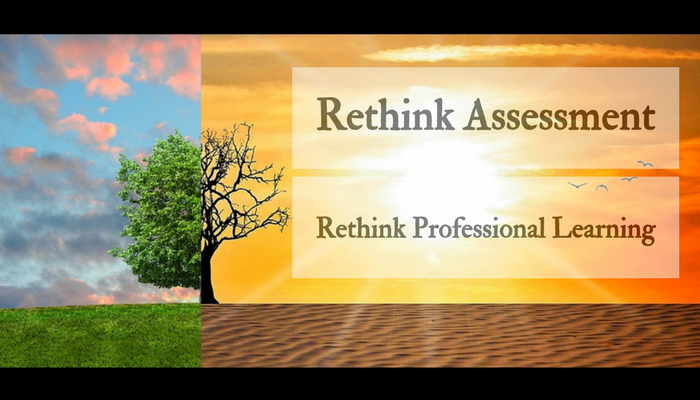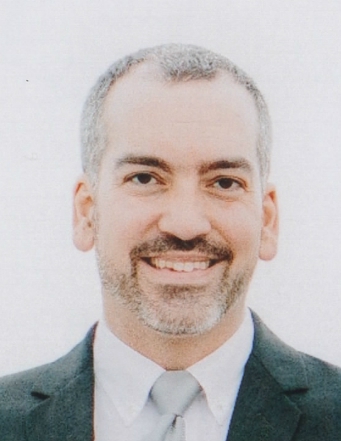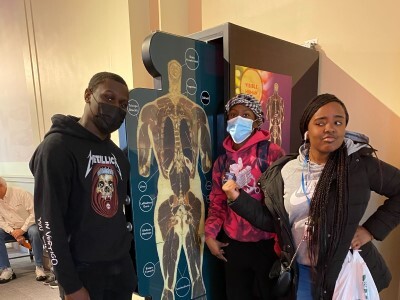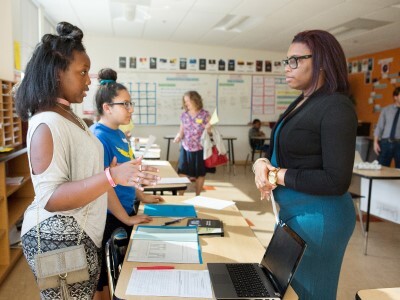Reimagining Assessment
Rethinking Assessment Requires Rethinking Professional Learning
Topics

Educators are rethinking the purposes, forms, and nature of assessment. Beyond testing mastery of traditional content knowledge—an essential task, but not nearly sufficient—educators are designing assessment for learning as an integral part of the learning process.
For students to learn deeply, the educators in their lives must also learn deeply. Rethinking assessment offers a powerful opportunity for deeper professional learning.
This post originally appeared on Education Week's Learning Deeply blog on March 28, 2017.
What is assessment, really? Having worked in and with schools for more than fifteen years, I thought I basically understood: assessment is how we measure what students know and can do. But a year of learning with the innovative educators of the Assessment for Learning Project (ALP) and Next Generation Learning Challenges has caused me to question this assumption (and many others). Here’s my new working definition of what it can and must be: assessment is a process for becoming expert in student learning.
The first definition, the traditional one, is about what students learn. The better definition is about how students learn.
Answering the second question is much more complex, and to do it effectively teachers must continually build their expertise in student learning. In other words, for students to learn deeply, the educators in their lives must also learn deeply. Rethinking assessment offers a powerful opportunity for this kind of deeper professional learning.
Going Deep: Performance Assessments
What if I told you that end-of-year, summative tests for accountability could be largely replaced by teacher-created performance assessments that require students to apply skills and knowledge to meaningful tasks? To most educators, the benefits of this approach are self-evident: these performance assessments would be more directly connected to the curriculum, they’d provide richer information to inform instruction, and they’d require students to use higher order thinking skills. But the first question on the lips of a policy wonk (no disrespect intended—I am one of these!) would be, “but are these assessments valid and reliable?”
For the past several years, New Hampshire has been piloting just such a system: the Performance Assessment for Competency Education (PACE) initiative. And a just-released evaluation sponsored by ALP lead partner the Center for Innovation in Education finds that yes, in fact, the technical quality of these teacher-created, teacher-scored assessments meet high standards for validity (they measure what they intend to) and reliability (they do so consistently).
How has PACE achieved this? Through intensive, highly supported teacher collaboration that continually deepens teacher expertise (an example of what we at NGLC call “systemic enabling.” Teachers score sample student work using rubrics, then meet together to “calibrate” their assessment of the work, sharing their rationales and evidence for the scores they gave. Depending on the intended use of the assessment results, additional checks and training are built in, including comparison to the Smarter Balanced test. This process is not easy, and it’s very time intensive. And yet we hear time and again from the educators we work with that it’s one of the most powerful forms of professional learning they take part in.
Going Even Deeper: Learning Progressions
Jonathan Vander Els, who was a principal at a PACE school and now leads the New Hampshire Learning Initiative, regularly sees this kind of professional learning in action. “Teachers who are part of PACE are constantly engaged in a cycle of reflection and refinement,” he told me. “It creates a culture of continuous reflection that allows teachers to take more ownership of the learning in their classrooms, which in turn presents new questions.” One of the biggest questions that PACE schools have grappled with is how to support individual students to “move on when ready” as they master material. This led to the No Grades, No Grades (NG2) project, which builds on the foundation of PACE to pilot multi-age groupings (no age-based grades) and competency-based education (no letter grades).
This shift requires teachers to go beyond interim checkpoints to map out how increasingly complex understandings develop continuously over time. One way to accomplish this is through learning progressions, which are the focus of another ALP project with the Colorado Education Initiative (CEI). CEI has been supporting collaboratives of teachers to create curriculum units with embedded performance assessments for several years as part of the Common Assignment Study. This year, building on that foundation, teachers are creating learning progressions for middle school math, science, and ELA.
Mapping out these developmental progression requires teachers to work side by side with researchers to dig deep into student work, deconstructing exactly how students make sense of the material. As Elena Diaz Bilello, the University of Colorado Boulder Center for Assessment Design, Research, and Evaluation (CADRE) researcher collaborating on the work explained to me, “teachers with deep content and pedagogical expertise are crucial to this work because they may see things in student work that a researcher might miss.”
When a collaborative of teachers puts this knowledge down on paper, they’re consolidating the collective experience of decades of working with children. But what they create is only a first draft—teachers then use the learning progressions in their classrooms, testing whether the documents actually capture the developmental progression for the students in their class, revising as needed, and discovering what is generalizable and what is unique to each student. This is a rigorous process of shared inquiry into student learning. It creates not only a tool, but a deep expertise in how understanding of complex concepts emerges in developing minds.
Inquiry processes like these are central to all of the ALP projects. The Center for Collaborative Education, a key partner in PACE, has created a set of microcredentials to give any teacher an entrypoint into performance assessment. Teachers at Del Lago Academy are using assessment to ask what it really takes to become a practicing scientist, and are discovering answers that are revealing even to the scientists themselves. Similarly, teachers at Two Rivers Public Charter School in Washington, D.C. are using the assessment process to deepen their expertise in recognizing and supporting the development of effective reasoning and problem solving. These inquiry processes become even more powerful when students themselves start doing the assessment—and building their own expertise in learning—as ALP projects from WestEd, Leadership Public Schools, and Henry County Schools in Georgia are showing.
As we’re seeing across our Assessment for Learning Project partners, thinking about assessment as a form of action research, shared inquiry into student learning, offers powerful opportunities for deeper professional learning. Is it reasonable to expect every teacher to engage in this way with assessment—to find the time to calibrate performance assessments or create new learning progressions? Of course not—unless we’re willing to ensure that teachers have the time, support, and professional autonomy to do so. But considering the investment we make each year in testing and accountability, it’s at least worth imagining what might be possible when we start to truly #rethinkassessment.




